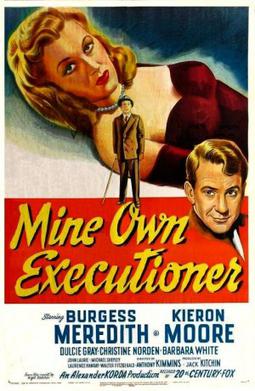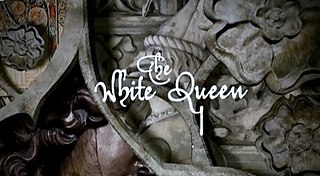
Sir Walter Scott, 1st Baronet, was a Scottish novelist, poet and historian. Many of his works remain classics of European and Scottish literature, notably the novels Ivanhoe (1819), Rob Roy (1817), Waverley (1814), Old Mortality (1816), The Heart of Mid-Lothian (1818), and The Bride of Lammermoor (1819), along with the narrative poems Marmion (1808) and The Lady of the Lake (1810). He had a major impact on European and American literature.

Sir Henry Rider Haggard was an English writer of adventure fiction romances set in exotic locations, predominantly Africa, and a pioneer of the lost world literary genre. He was also involved in land reform throughout the British Empire. His stories, situated at the lighter end of Victorian literature and including the eighteen Allan Quatermain stories beginning with King Solomon's Mines, continue to be popular and influential.

Highgate Cemetery is a place of burial in north London, England, designed by architect Stephen Geary. There are approximately 170,000 people buried in around 53,000 graves across the West and East sides. Highgate Cemetery is notable both for some of the people buried there as well as for its de facto status as a nature reserve. The Cemetery is designated Grade I on the Register of Historic Parks and Gardens.

The Thirty-Nine Steps is a 1915 adventure novel by the Scottish author John Buchan, first published by William Blackwood and Sons, Edinburgh. It was serialized in All-Story Weekly issues of 5 and 12 June 1915, and in Blackwood's Magazine between July and September 1915, before being published in book form in October of that year. It is the first of five novels featuring Richard Hannay, an all-action hero with a stiff upper lip and a knack for getting himself out of tricky situations.

Sir James Brooke, Rajah[note]of Sarawak, was a British soldier and adventurer who founded the Raj of Sarawak in Borneo. He ruled as the first White Rajah of Sarawak from 1841 until his death in 1868.

Sir John Hawkwood was an English soldier who served as a mercenary leader or condottiero in Italy. As his name was difficult to pronounce for non-English-speaking contemporaries, there are many variations of it in the historical record. He often referred to himself as Haukevvod and in Italy, he was known as Giovanni Acuto, literally meaning "John Sharp" in reference to his "cleverness or cunning". His name was Latinised as Johannes Acutus. Other recorded forms are Aucgunctur, Haughd, Hauvod, Hankelvode, Augudh, Auchevud, Haukwode and Haucod. His exploits made him a man shrouded in myth in both England and Italy. Much of his enduring fame results from the surviving large and prominent fresco portrait of him in the Duomo, Florence, made in 1436 by Paolo Uccello, seen every year by 4½ million tourists.

Admiral of the Red James Saumarez, 1st Baron de Saumarez, GCB was an admiral of the British Royal Navy, known for his victory at the Second Battle of Algeciras.

Murder! is a 1930 British thriller film co-written and directed by Alfred Hitchcock and starring Herbert Marshall, Norah Baring and Edward Chapman. Written by Hitchcock, his wife Alma Reville and Walter C. Mycroft, it is based on the 1928 novel Enter Sir John by Clemence Dane and Helen Simpson. It was Hitchcock's third all-talkie film, after Blackmail (1929) and Juno and the Paycock (1930).

The White Company is a historical adventure novel by British writer Arthur Conan Doyle, set during the Hundred Years' War. The story is set in England, France and Spain, in the years 1366 and 1367, against the background of the campaign of Edward the Black Prince, to restore Peter of Castile to the throne of the Kingdom of Castile. The climax of the book occurs before the Battle of Nájera. Doyle became inspired to write the novel after attending a lecture on the Middle Ages in 1889. After extensive research, The White Company was published in serialised form in 1891 in The Cornhill Magazine. Additionally, the book is considered a companion to Doyle's 1905–06 Sir Nigel, which explores the early campaigns of Sir Nigel Loring and Samkin Aylward.

Sir Horatio Gilbert George Parker, 1st Baronet, known as Gilbert Parker, Canadian novelist and British politician, was born at Camden East, Addington, Ontario, the son of Captain Joseph Parker, R.A.

Richard Chancellor was an English explorer and navigator; the first to penetrate to the White Sea and establish relations with the Tsardom of Russia.

Giles Milton FRHistS is a British writer and journalist, who specialises in narrative history. He writes non-fiction, historical fiction, and children's history books, and is best known for Churchill's Ministry of Ungentlemanly Warfare, and Nathaniel's Nutmeg.

The Monastery: a Romance (1820) is a historical novel by Walter Scott, one of the Waverley novels. Set in the Scottish Borders in the 1550s on the eve of the Reformation, it is centred on Melrose Abbey.

Josslyn Victor Hay, 22nd Earl of Erroll was a British peer and a member of the British Union of Fascists, known for the unsolved case surrounding his murder and the sensation it caused during wartime in Britain.

Winifred Ashton CBE, better known by the pseudonym Clemence Dane, was an English novelist and playwright.

Action for Slander is a 1937 British drama film directed by Tim Whelan and starring Clive Brook, Ann Todd and Googie Withers. The plot is about an army officer who is falsely accused at cheating at cards by a man whose wife he had an affair with and struggles to clear his name. It was an adaptation of the 1937 novel Action for Slander by Mary Borden.

Mine Own Executioner is a 1947 British psychological thriller drama film starring Burgess Meredith and directed by Anthony Kimmins, and based on the novel of the same name by Nigel Balchin. It was entered into the 1947 Cannes Film Festival. The title is derived from a quotation of John Donne's "Devotions", which serves as an epigraph for the original book.

The White Queen is a British historical drama television drama serial based on Philippa Gregory's historical novel series The Cousins' War. The first episode premiered on BBC One on 16 June 2013 in the UK.


















